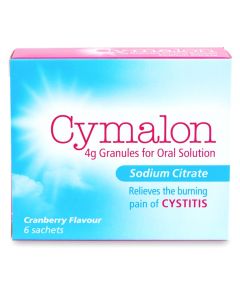
There are several types of cystitis medications available for women who experience frequent urination. Interstitial cystitis is a common condition characterized by a burning sensation during urination, frequent bowel movements, and pain around the bladder. This condition can last for many years before it suddenly disappears without a warning. Luckily, there are a variety of cystitis medications for women that can help alleviate symptoms.
In some cases, cystitis is caused by a bacterial infection in the bladder. During this infection, bacteria in the bladder can reach the kidneys and cause problems. Antibiotics can treat this infection and reduce the symptoms. Other medications, such as nephrospasm treatments, can help alleviate the symptoms. For more information, consult your healthcare provider. In general, antibiotics are the best treatment option for uncomplicated cystitis. The dose for such treatment is usually low and can be taken for a few months.
Certain antibiotics can have a strong effect on body weight. Phytopreparations are more effective than antibiotics, but can be used during pregnancy with the advice of your doctor. Natural cystitis medications are often used in conjunction with antibiotics for women who suffer from this condition. These treatments reduce the pain and cramping, and are safe for pregnant women. Those with sensitive stomachs should avoid certain chemicals and take care of other risk factors.
Interstitial cystitis is a condition that affects the lower urinary tract, not the bladder itself. Symptoms include a painful bladder, increased frequency of urination, and increased daytime and nighttime voiding. The use of these drugs should be discussed with your healthcare provider. Moreover, patients should seek advice from a health care provider about the appropriate medication. When in doubt, patients should seek the assistance of a qualified healthcare professional or a support group.
While antibiotics can help in preventing and curing cystitis, it is essential to consult your doctor for diagnosis and treatment. Medications for cystitis can only be taken if a physician has diagnosed the condition. Some cystitis medications can be purchased over the internet. These are available for purchase at an online clinic. They can also be used for symptomatic relief. If these methods are not effective, your physician may prescribe a combination of over-the-counter and prescription antibiotics.
In case of a hospital-acquired bladder infections, different antibiotics may be needed. The treatment may involve using different antibiotics, or it can involve surgical removal of the affected organ. Sometimes, an over-the-counter product can help alleviate the symptoms of cystitis. These creams are made up of various ingredients that reduce acidity and inflammation of the bladder. Some of these drugs, however, can have severe side effects and should only be used as a last resort.
Usually, women with cystitis can treat the condition at home. Several over-the-counter products for cystitis can help decrease the acidity of the urine. They can also be applied topically to the affected area. Besides over-the-counter products, pharmacists can provide helpful advice about the treatment options for cystitis. The pharmacist can offer valuable information to the patient about different methods of curing cystitis.
Depending on the cause of the problem, there are many cystitis medications that can be taken at home to relieve symptoms. Some of these drugs may help treat symptoms associated with interstitial cystitis. Although most of these drugs are effective, it is important to discuss the risks and benefits with your healthcare provider. These medicines are designed to treat various symptoms associated with cystitis. If you have been diagnosed with a bacterial infection, you should see a doctor or visit a health website as soon as possible https://www.culturademocratica.org/.
For uncomplicated cystitis, a woman can use over-the-counter medications that can relieve symptoms. These over-the-counter drugs reduce the acidity of the urine, which helps relieve the pain and burning sensation associated with cystitis. Although these medications are usually recommended, some women may find that they are uncomfortable and ineffective. If symptoms persist, the woman should consult a doctor to find the right medication.
For women with cystitis, a doctor may prescribe antibiotics on a regular or continuous basis. The first can be taken in a pharmacy without visiting a therapist. The last type is taken for several months. The goal of long-term use of these antibiotics is to prevent the recurrence of new episodes of infection. Your doctor may also suggest steps to prevent further cystitis from occurring. These measures should be applied and monitored to avoid recurrence of symptoms.


